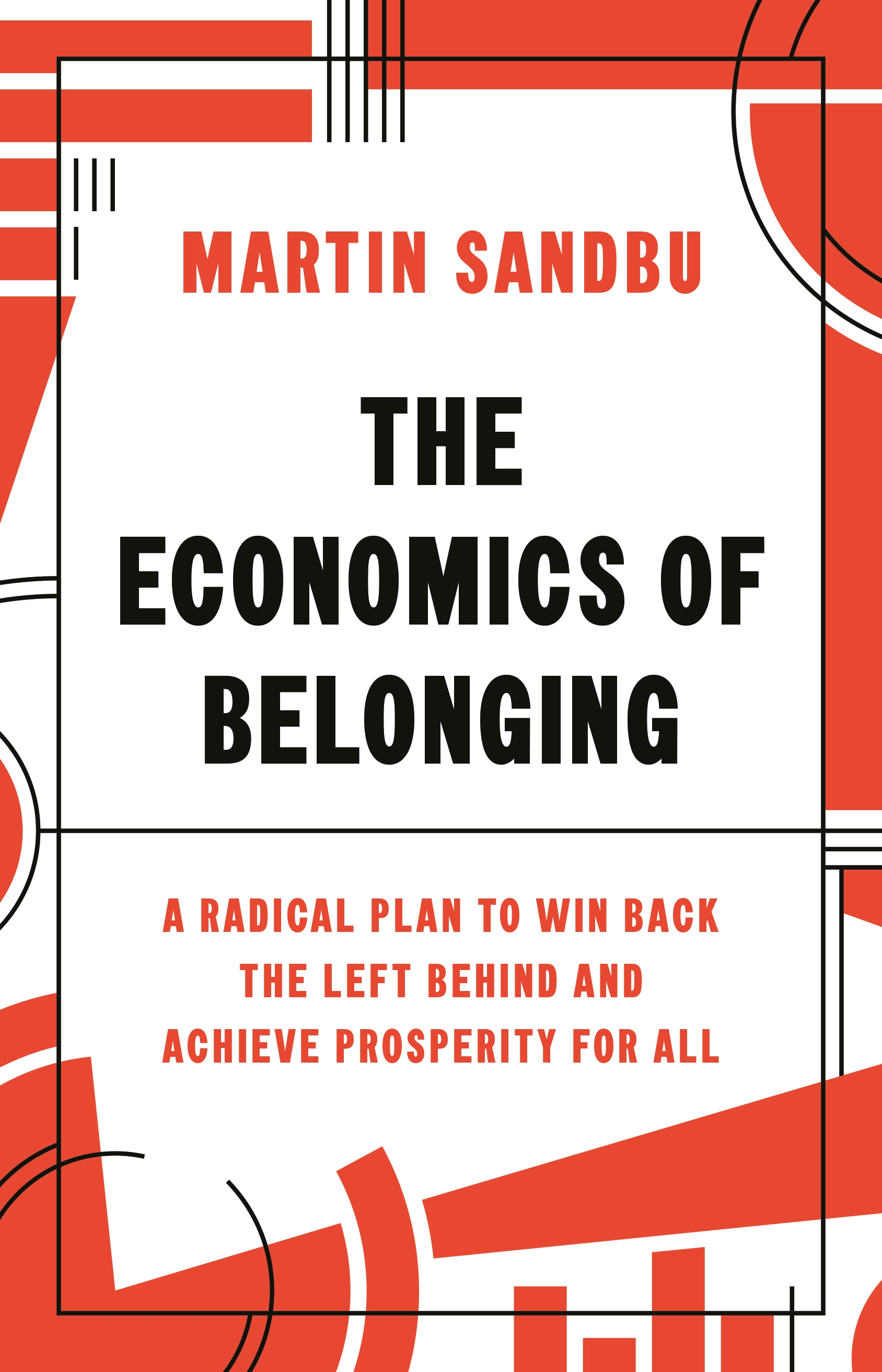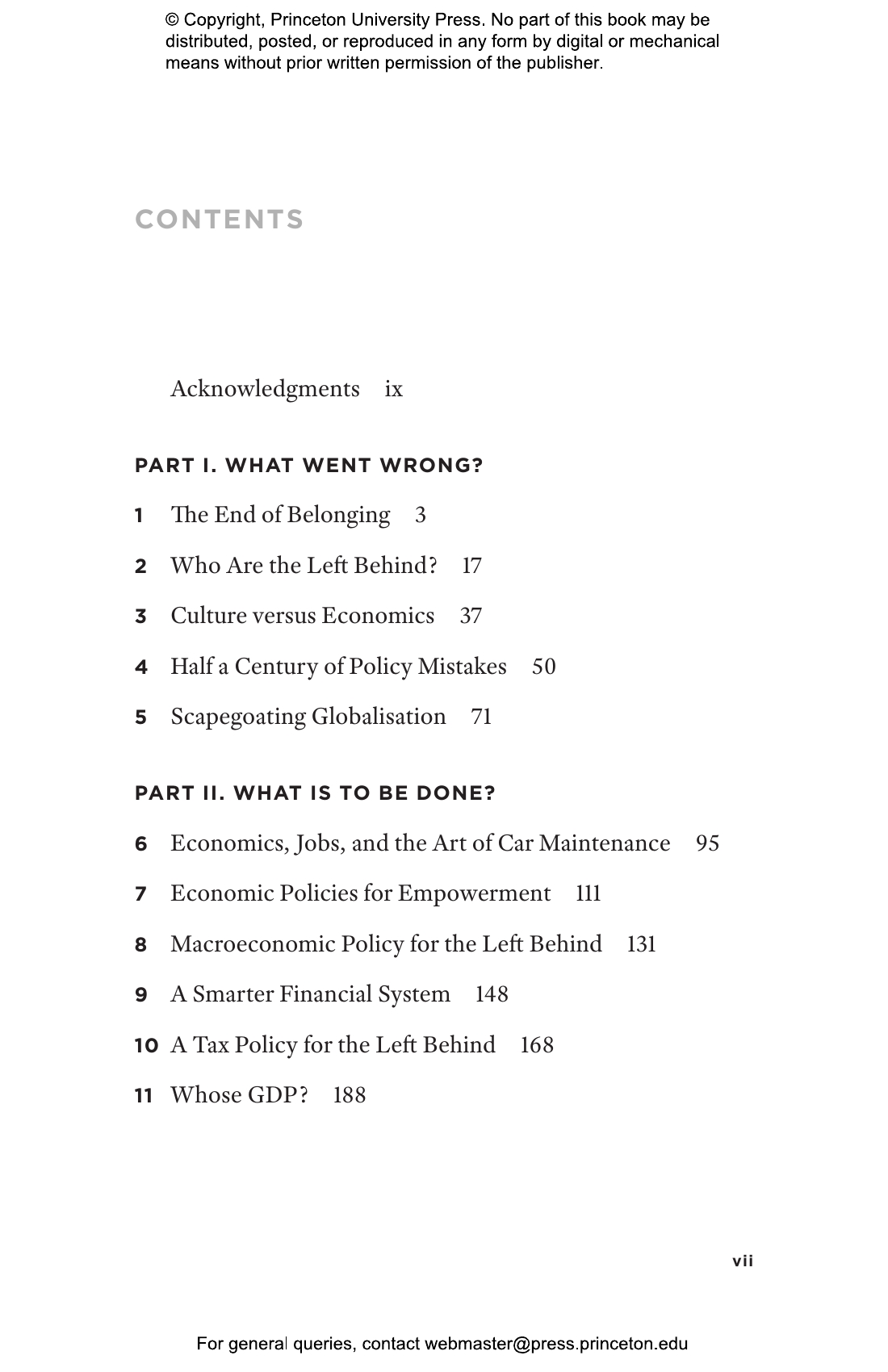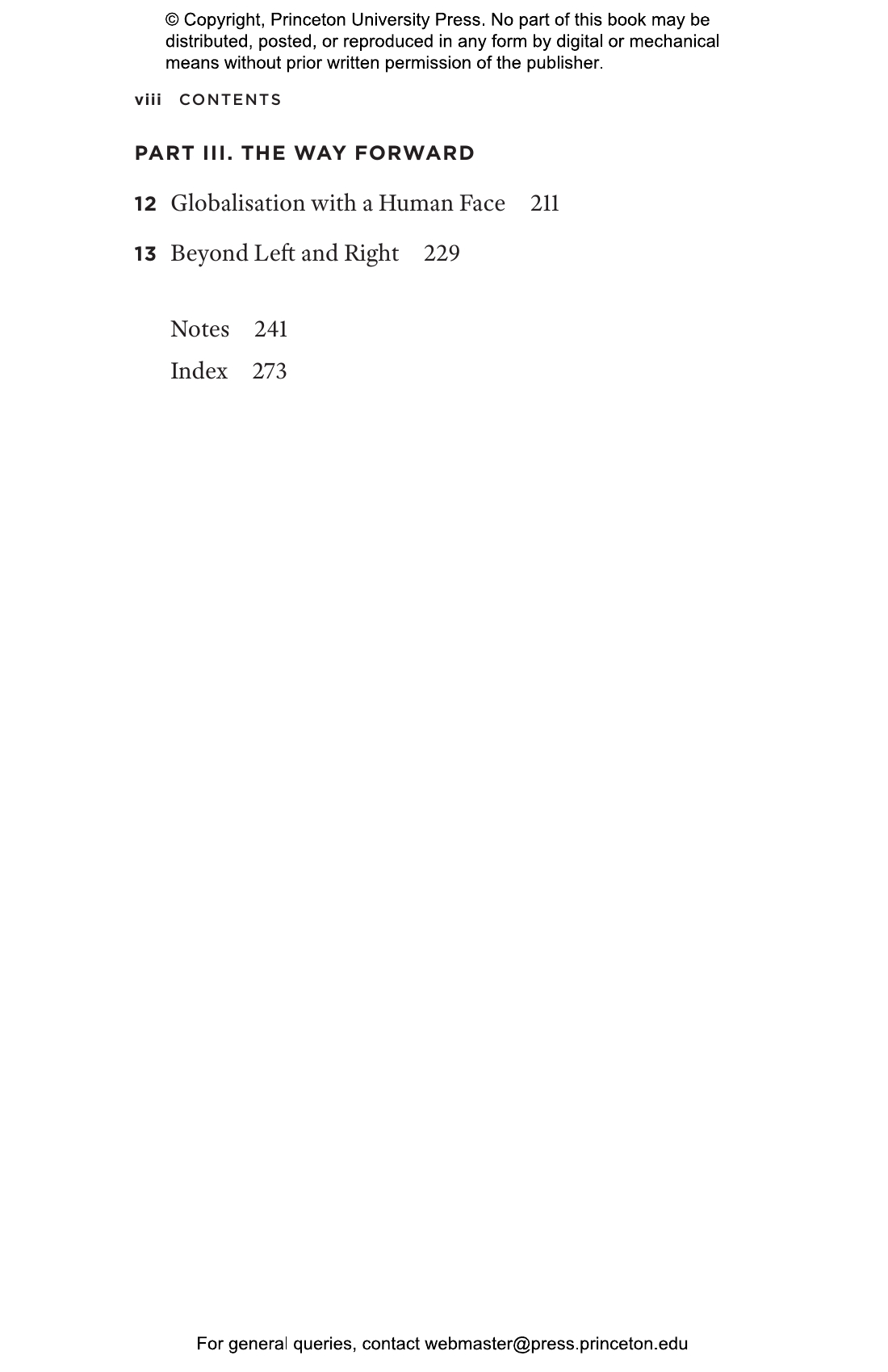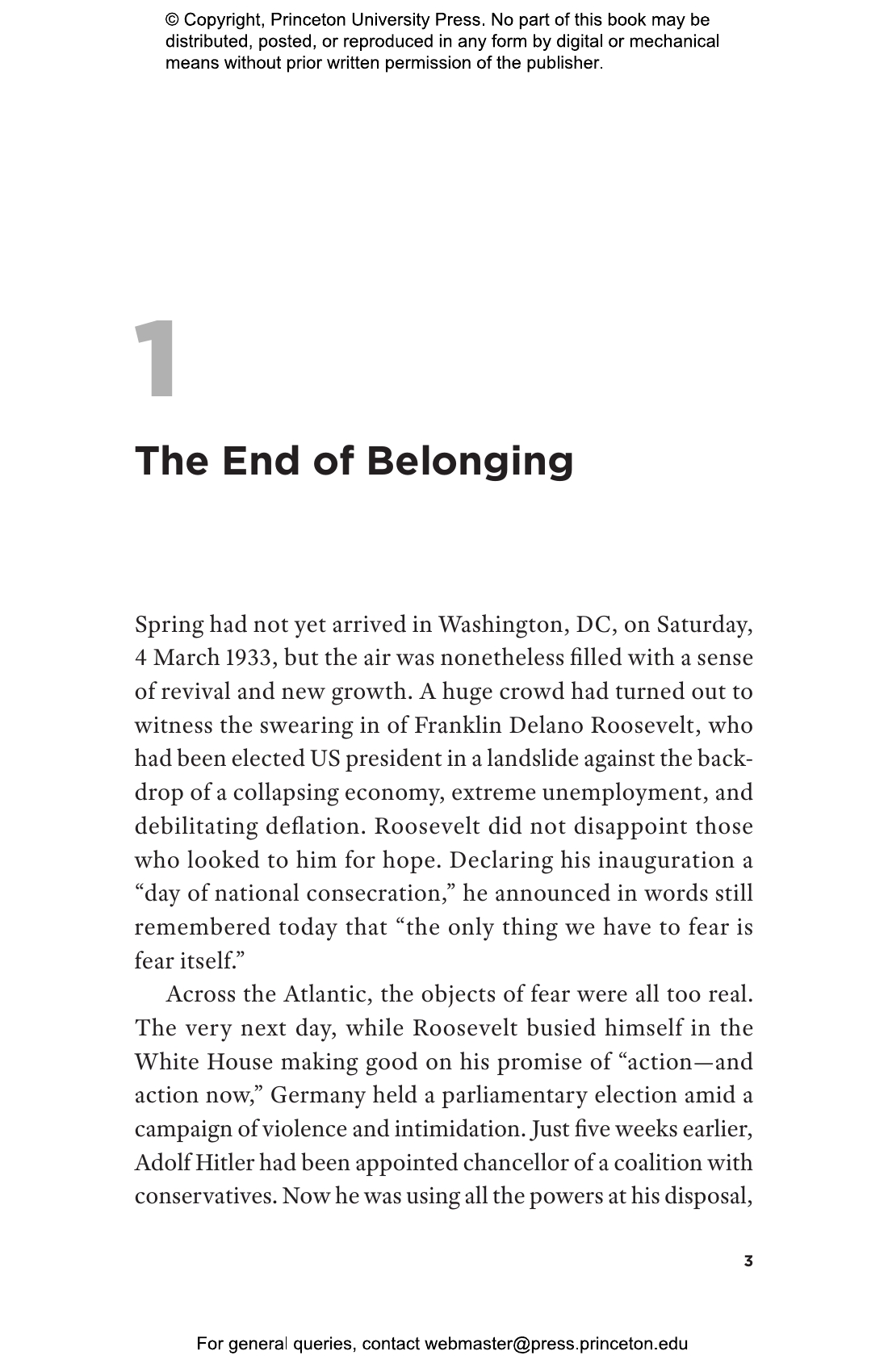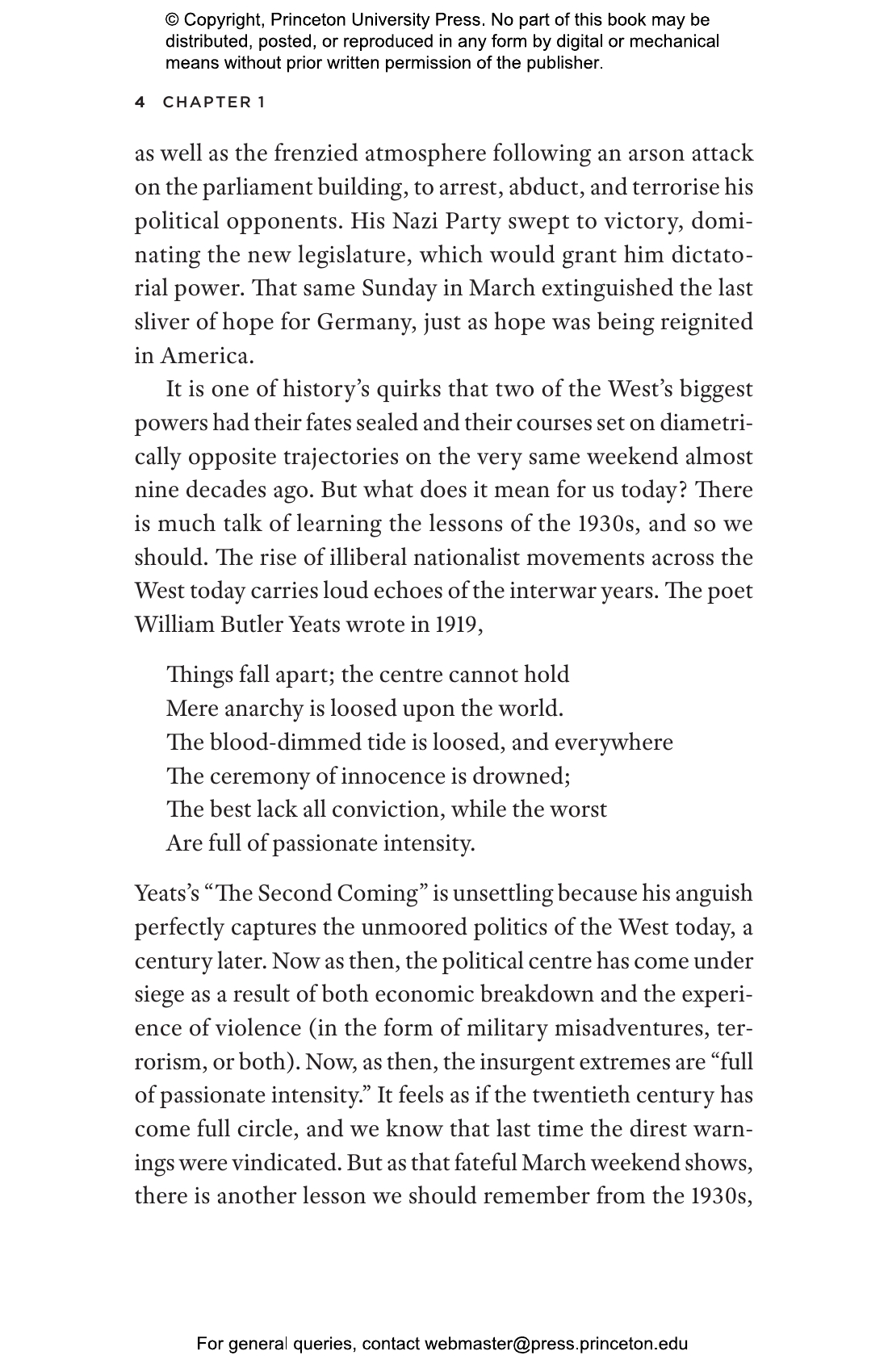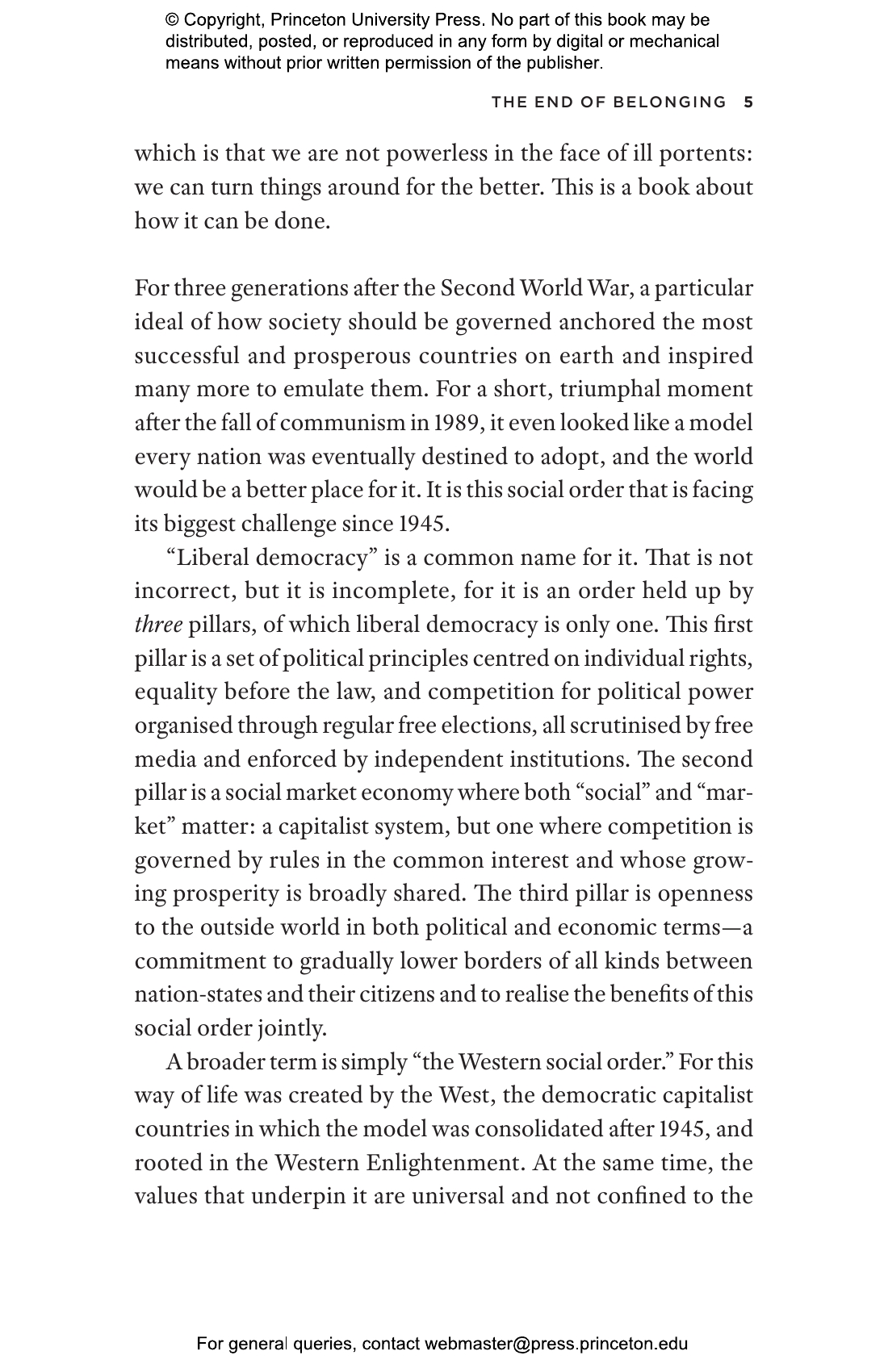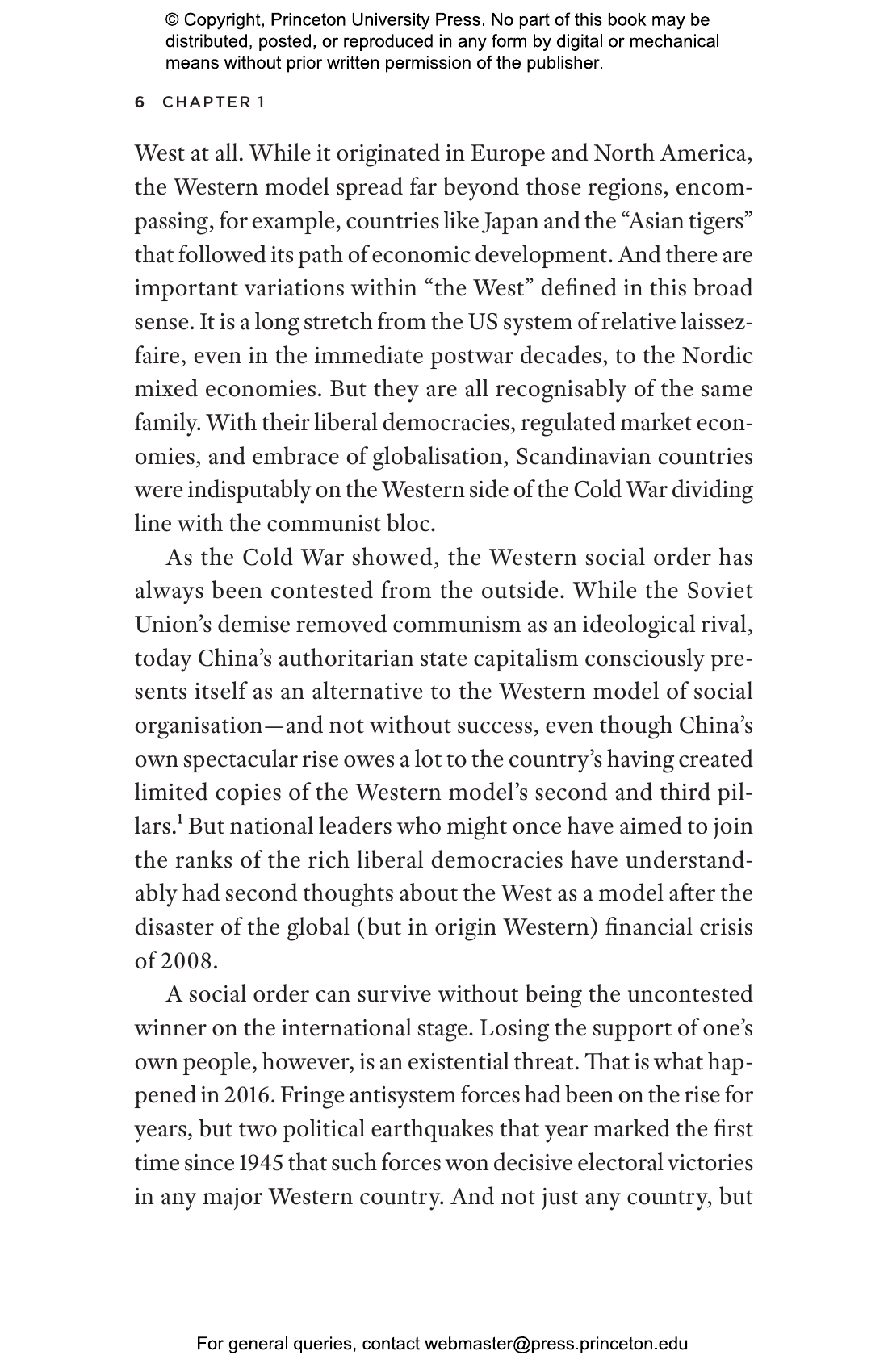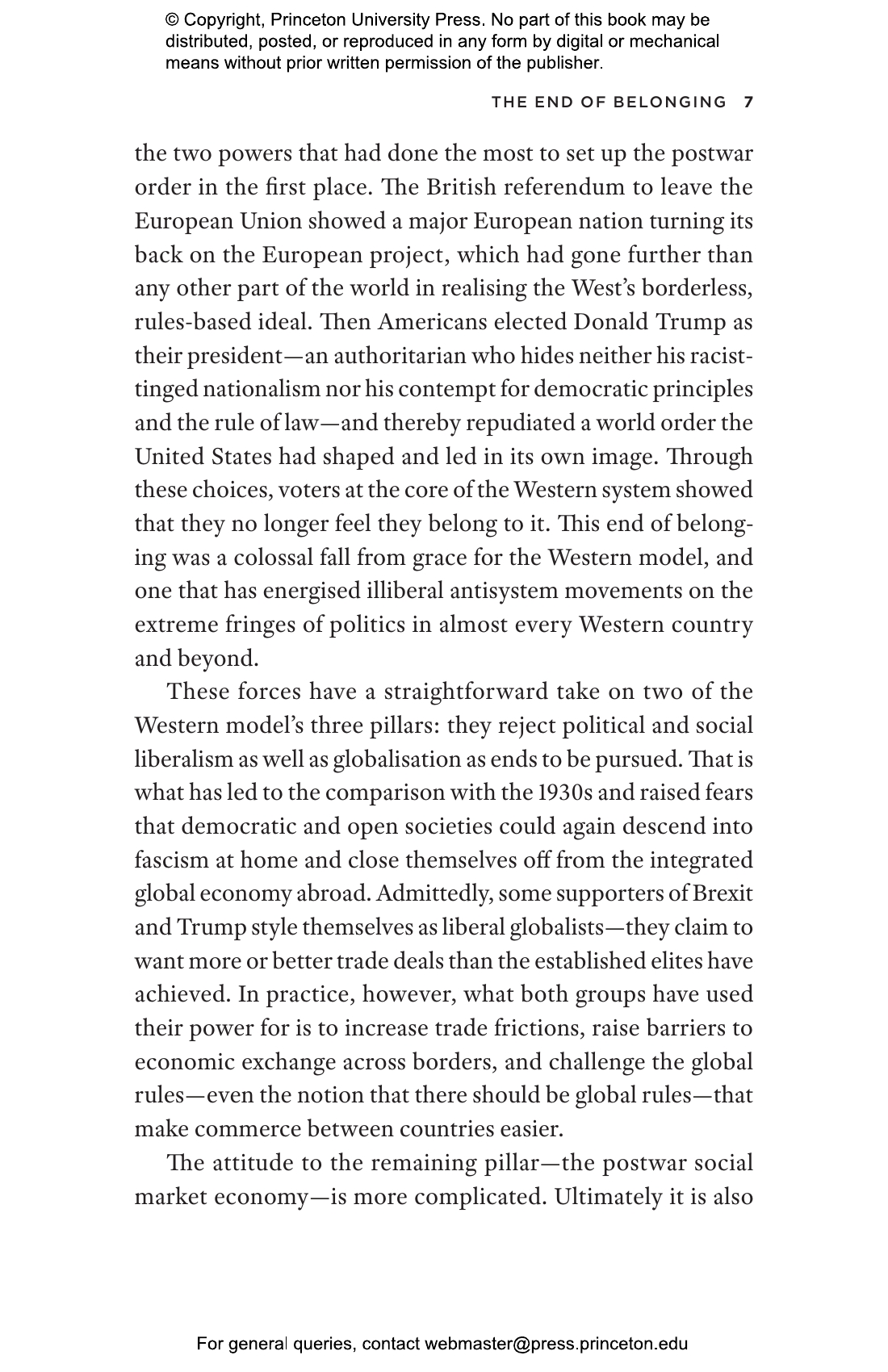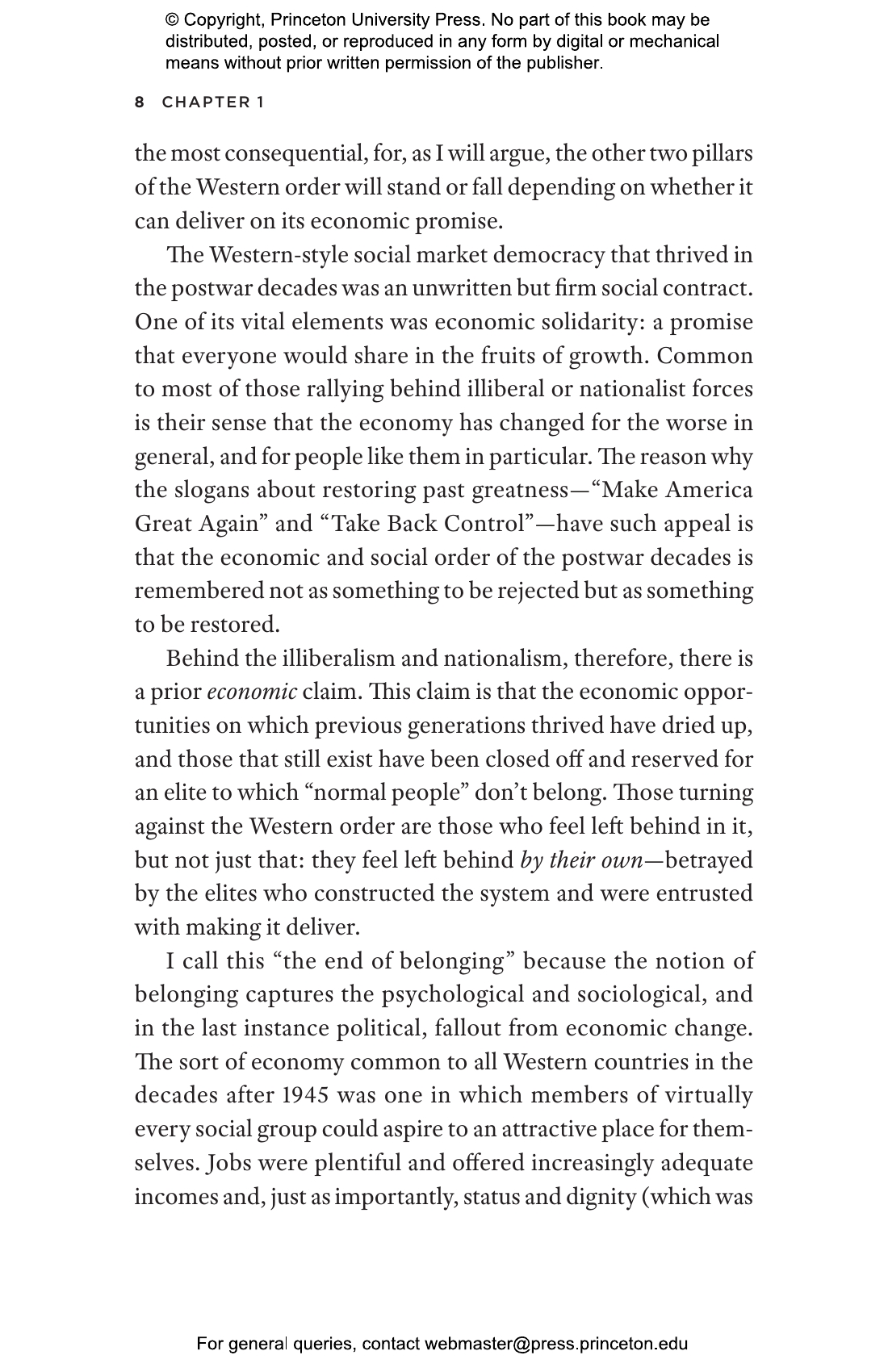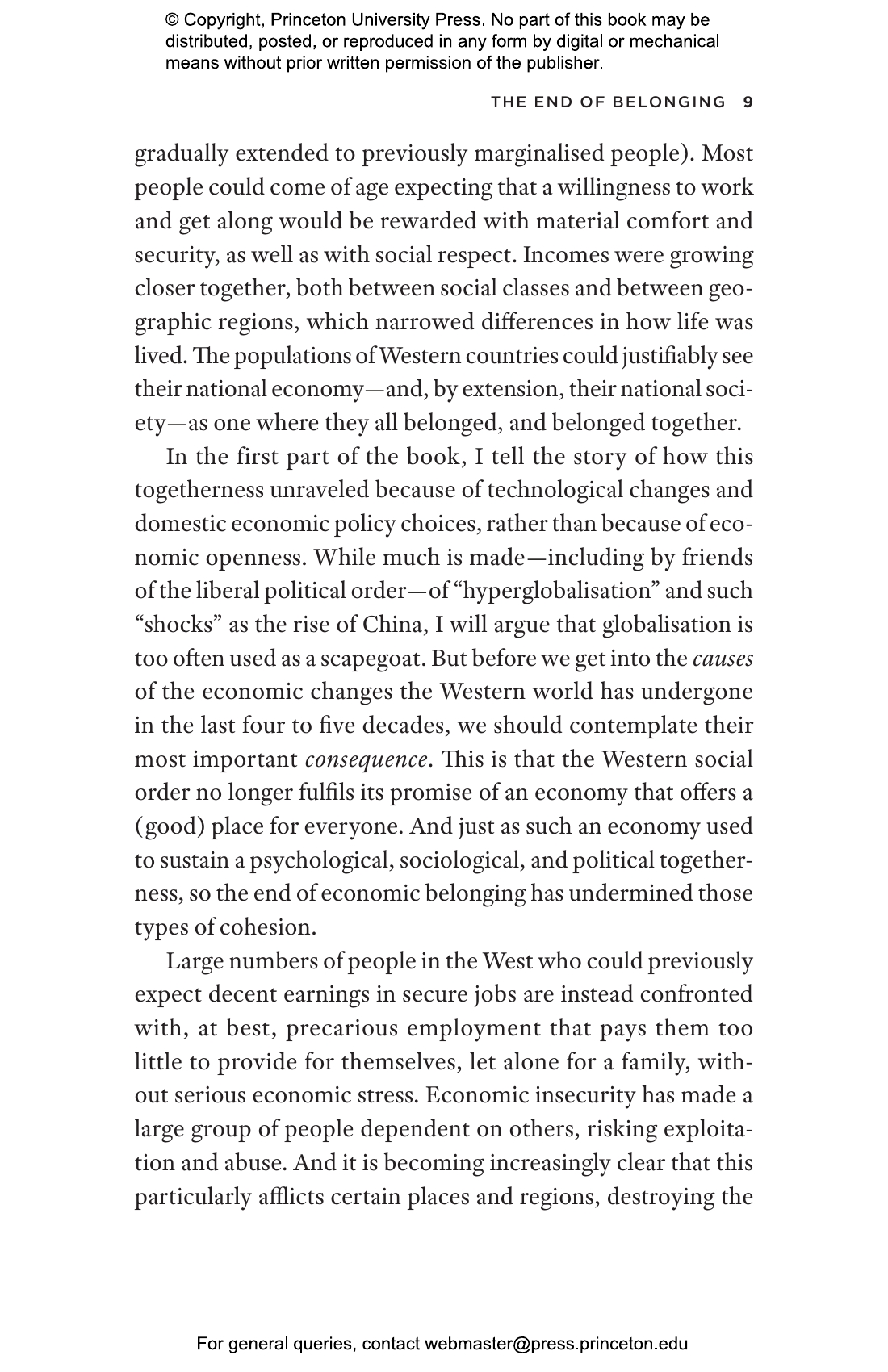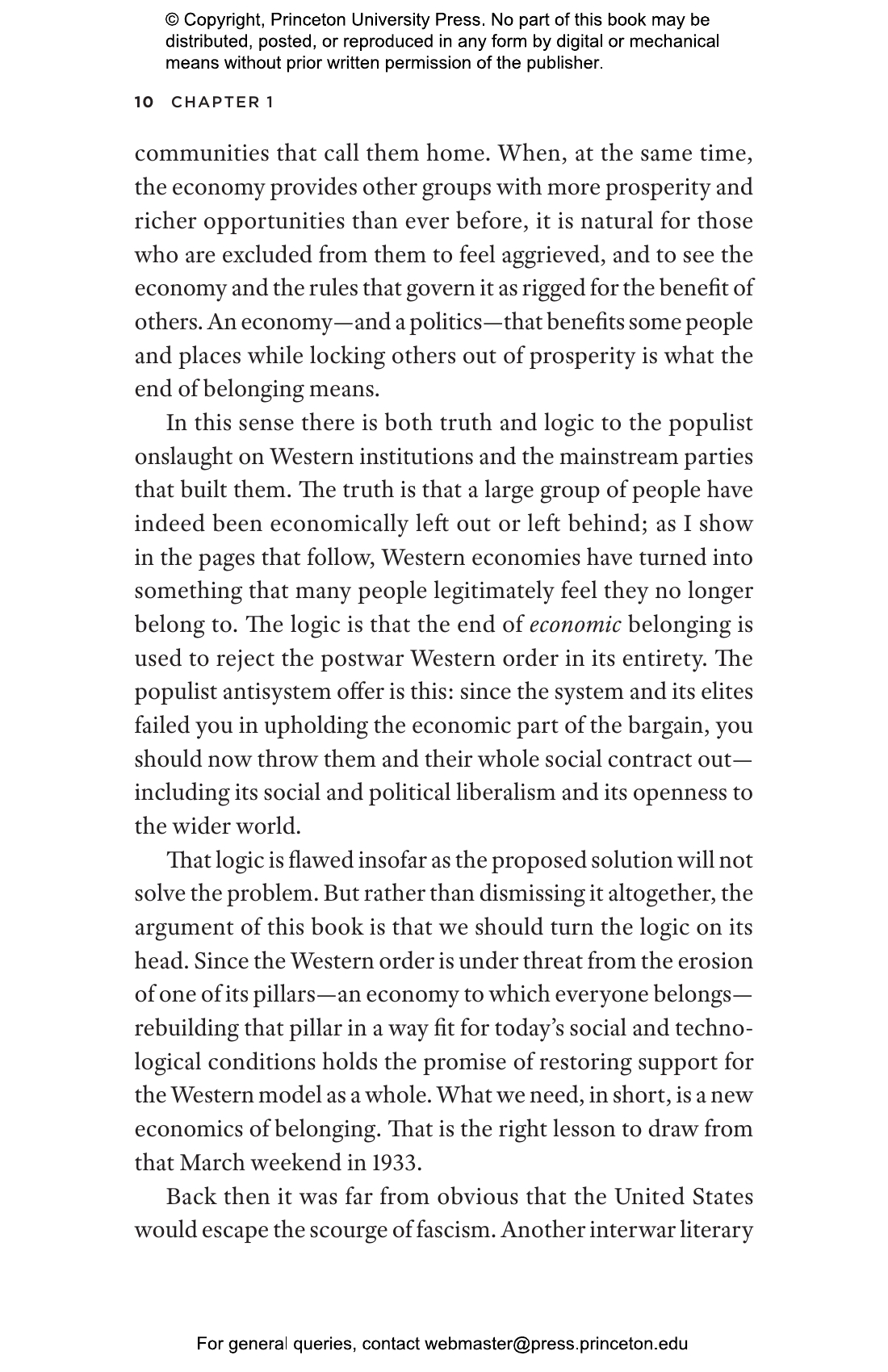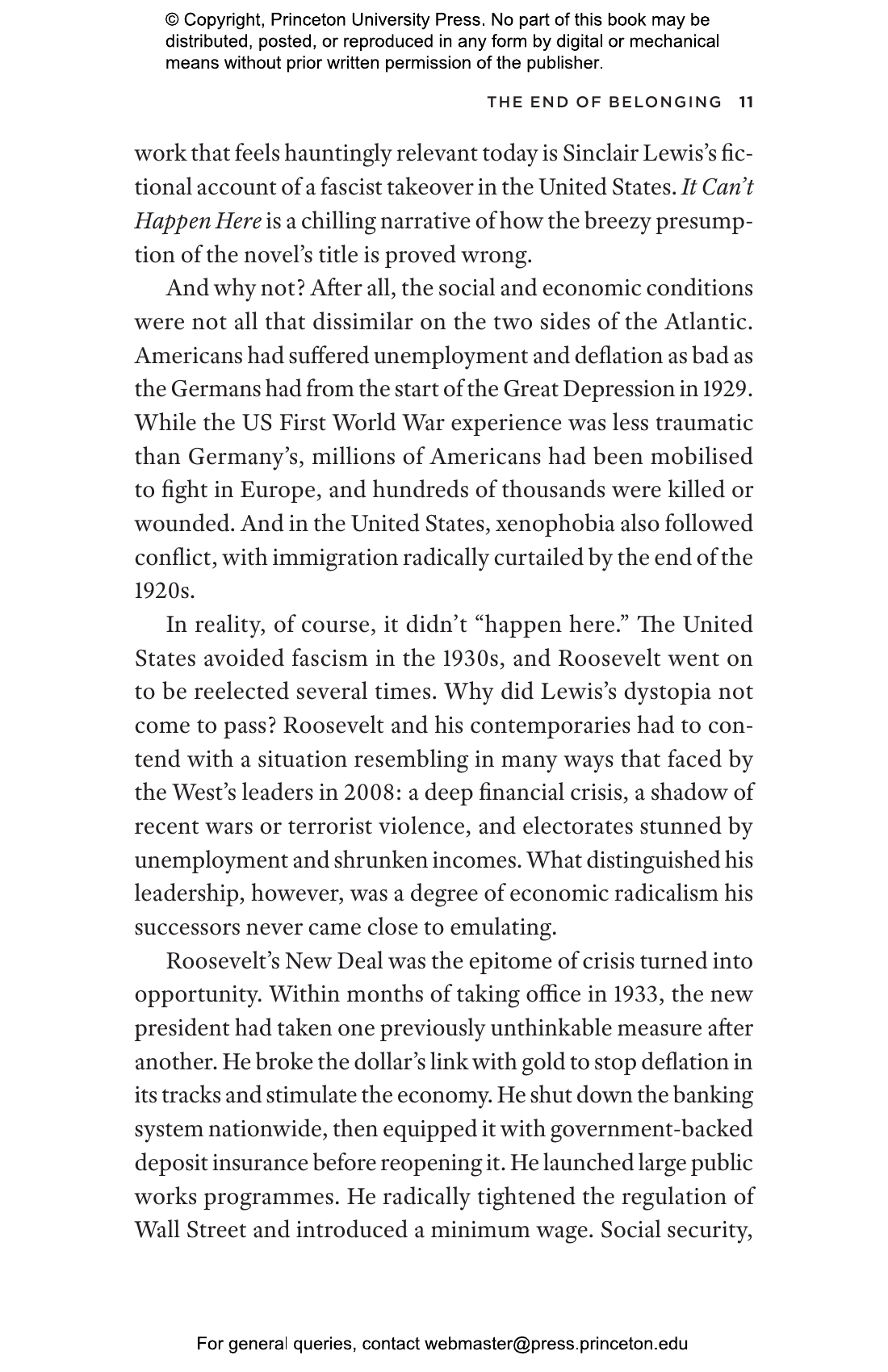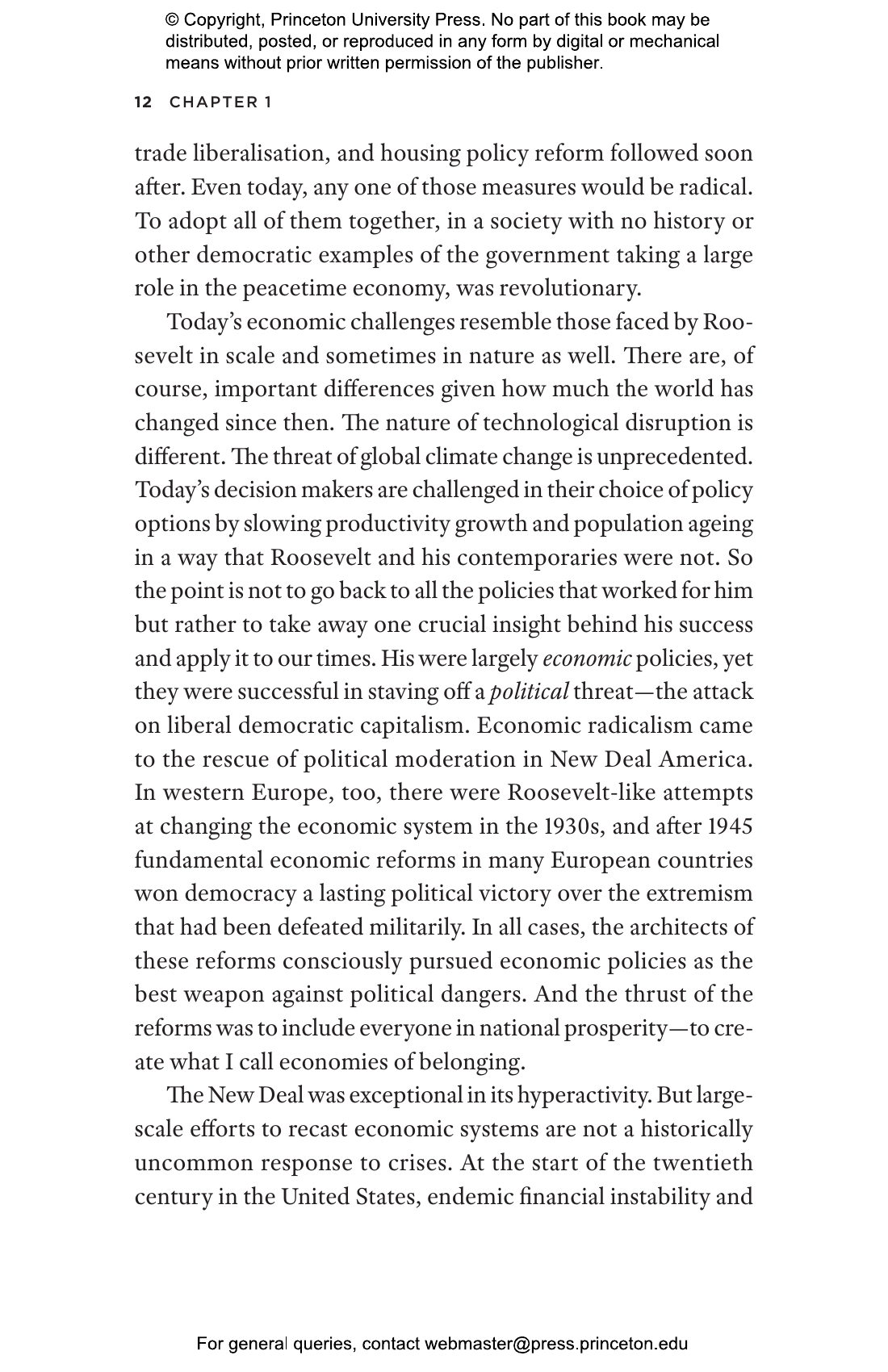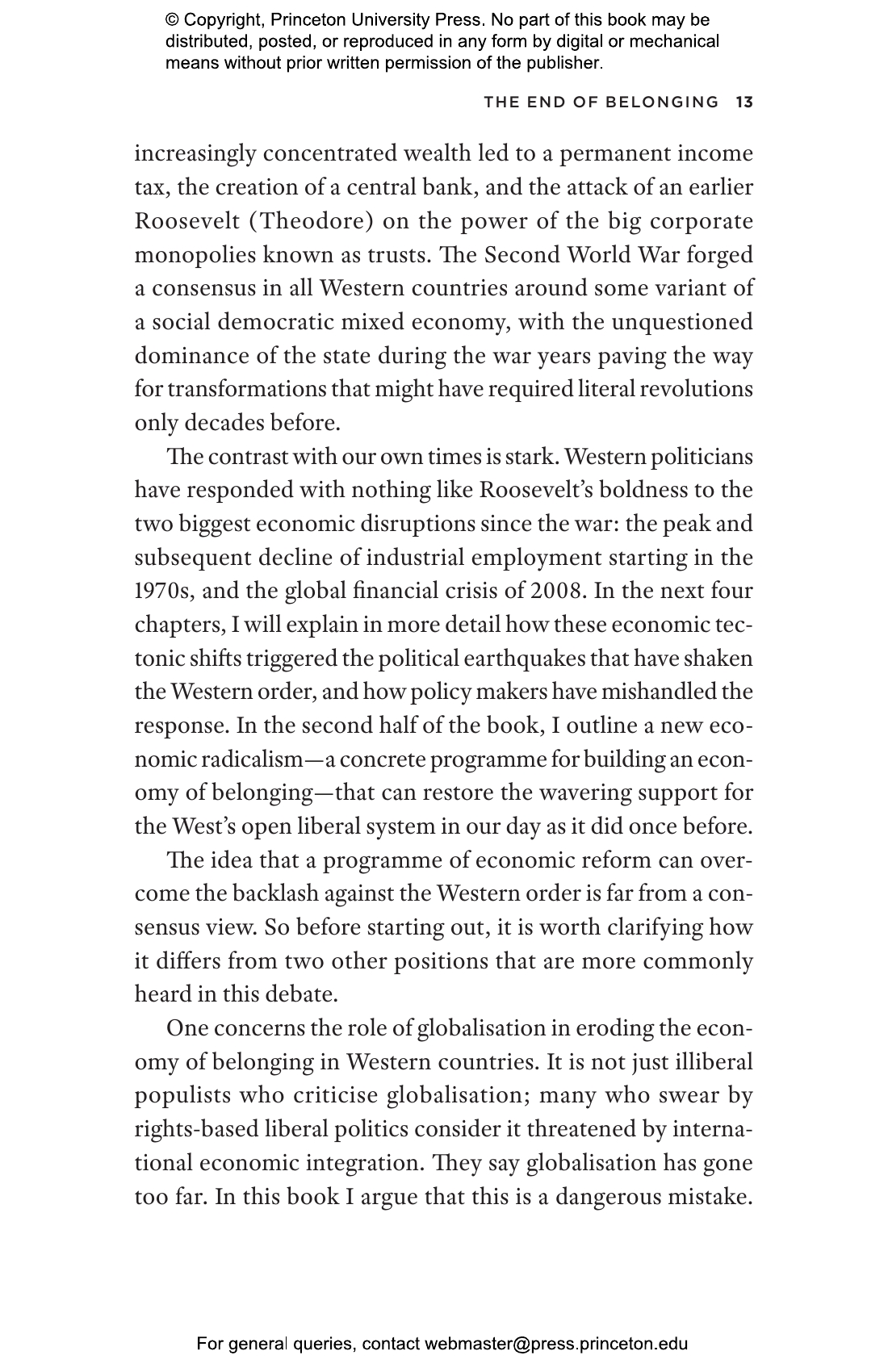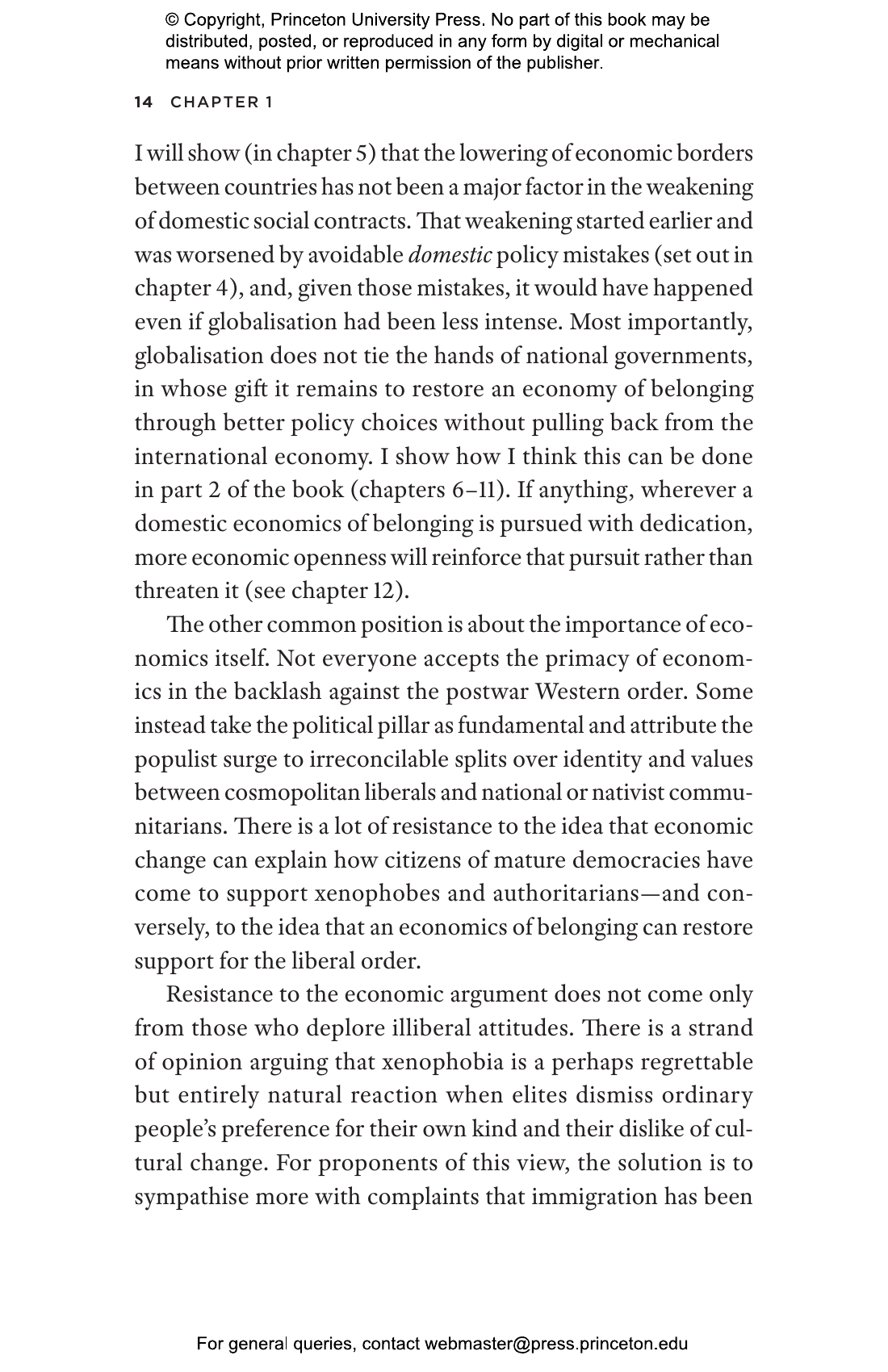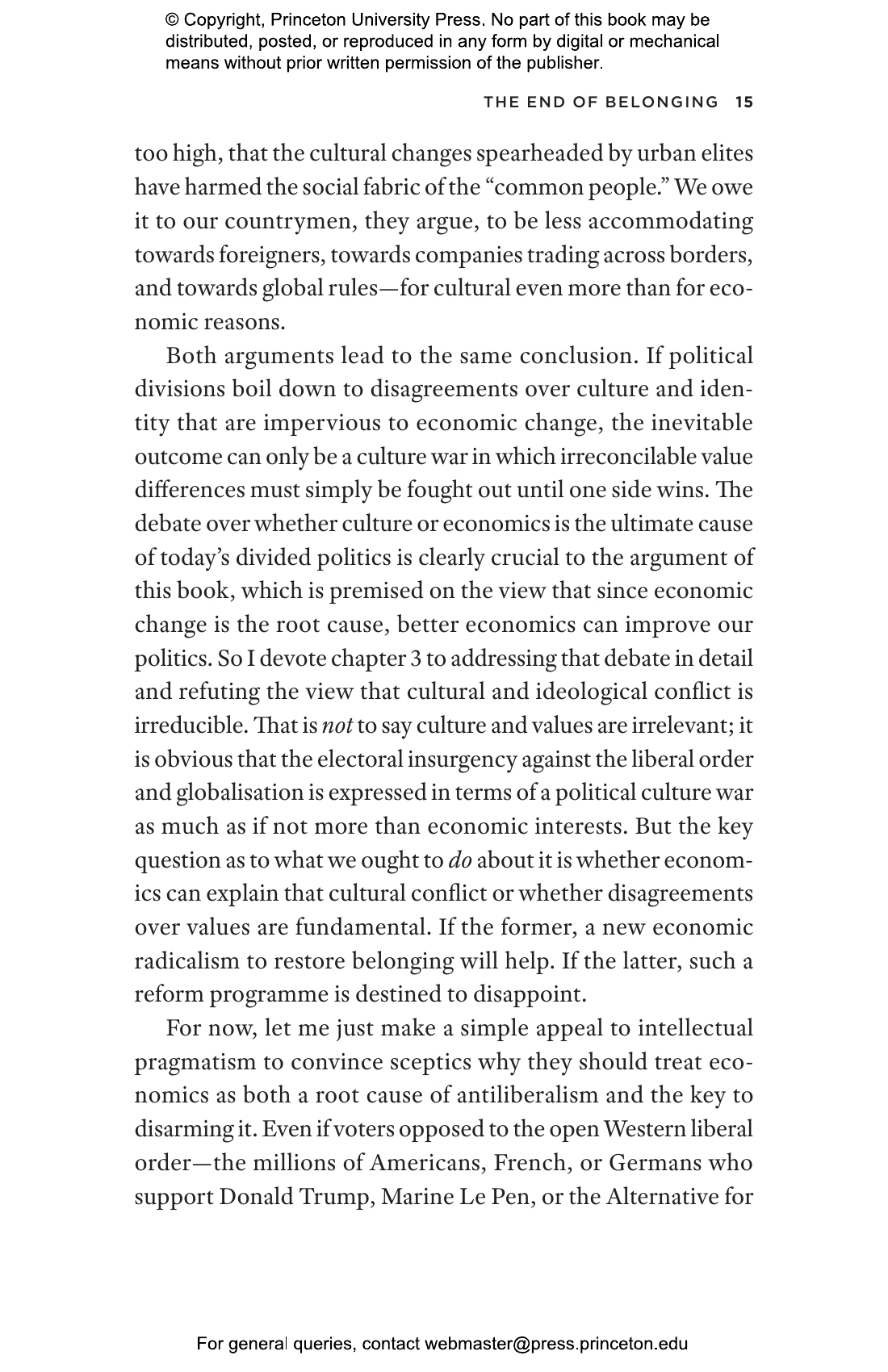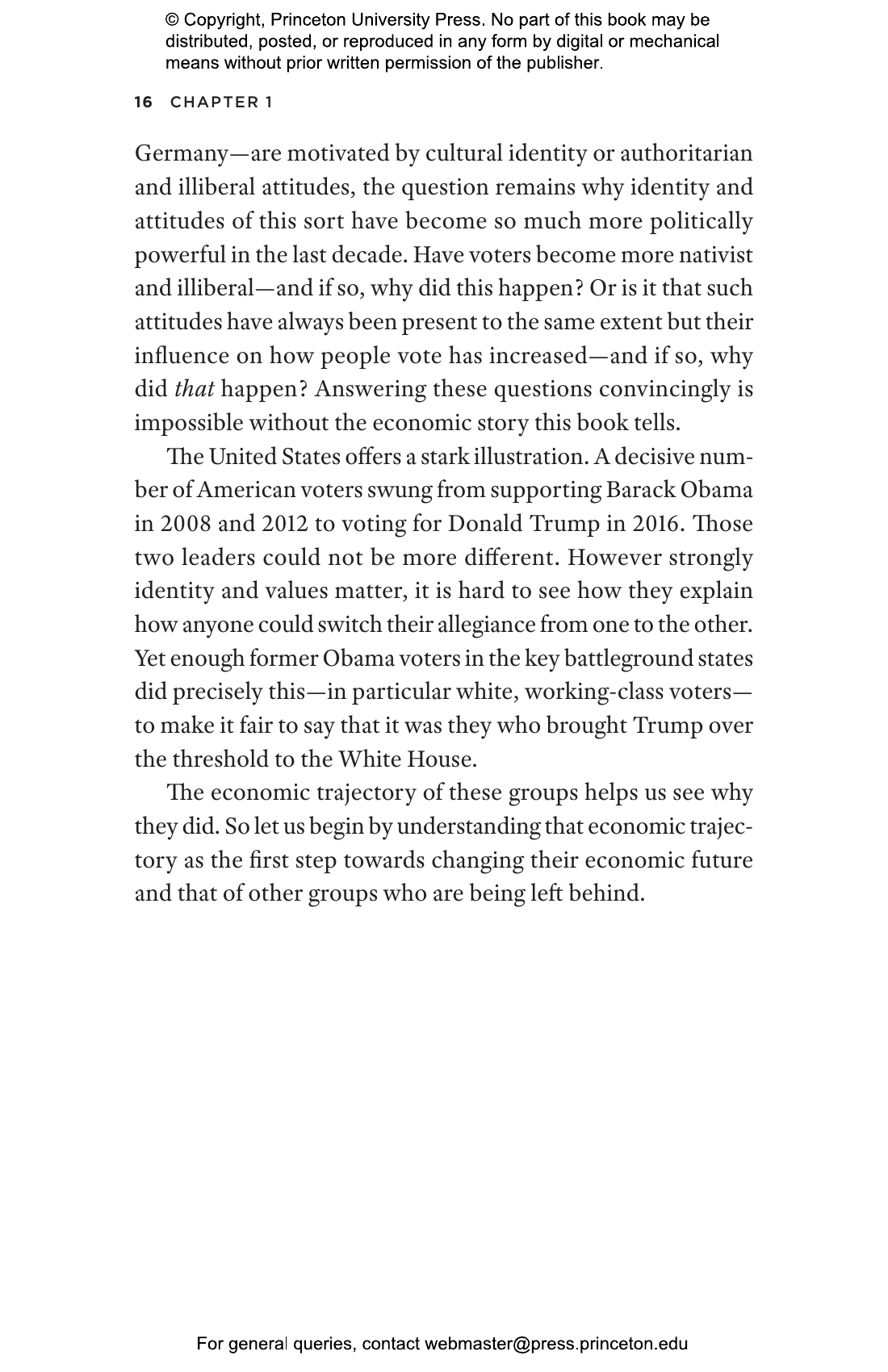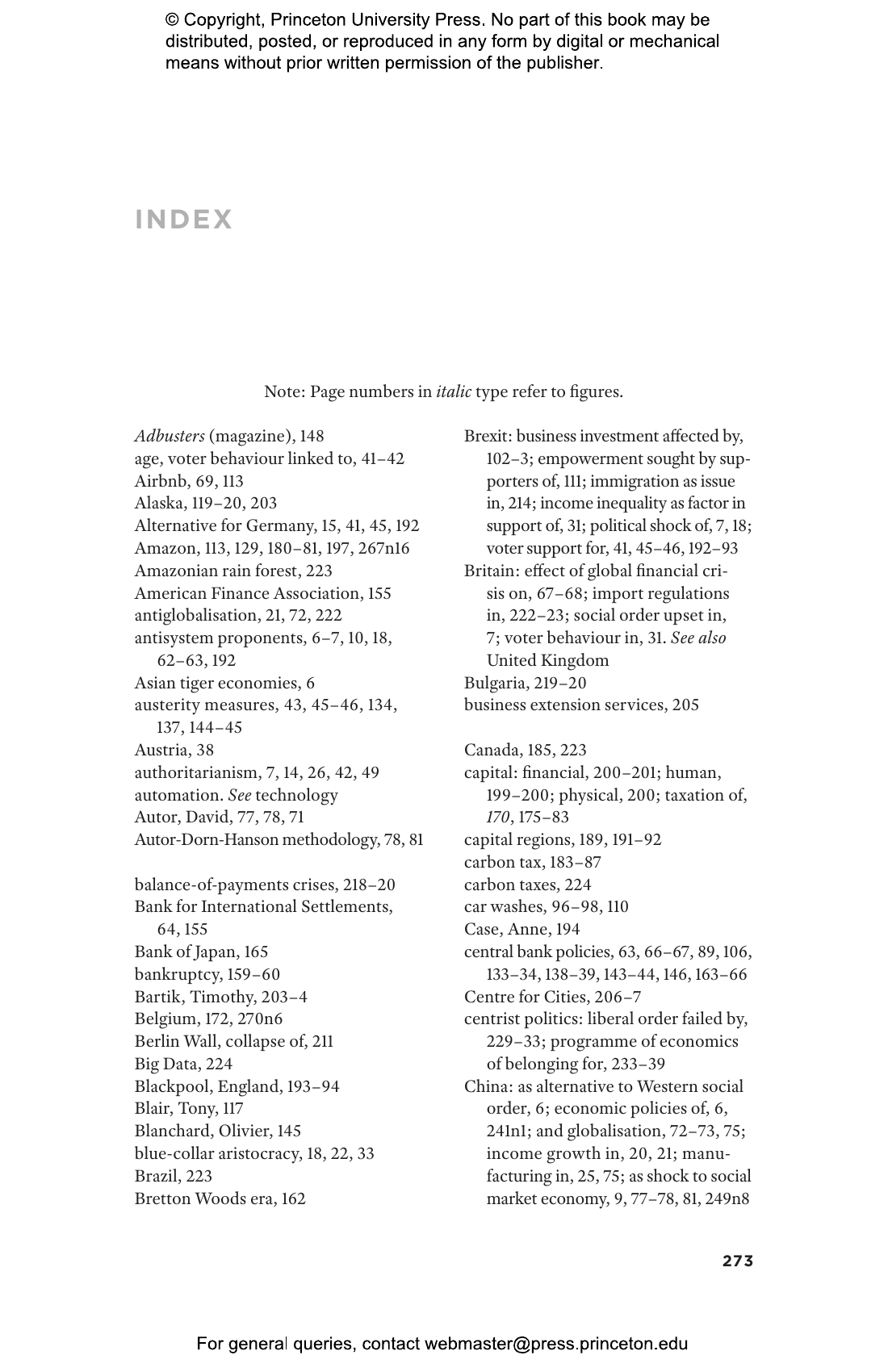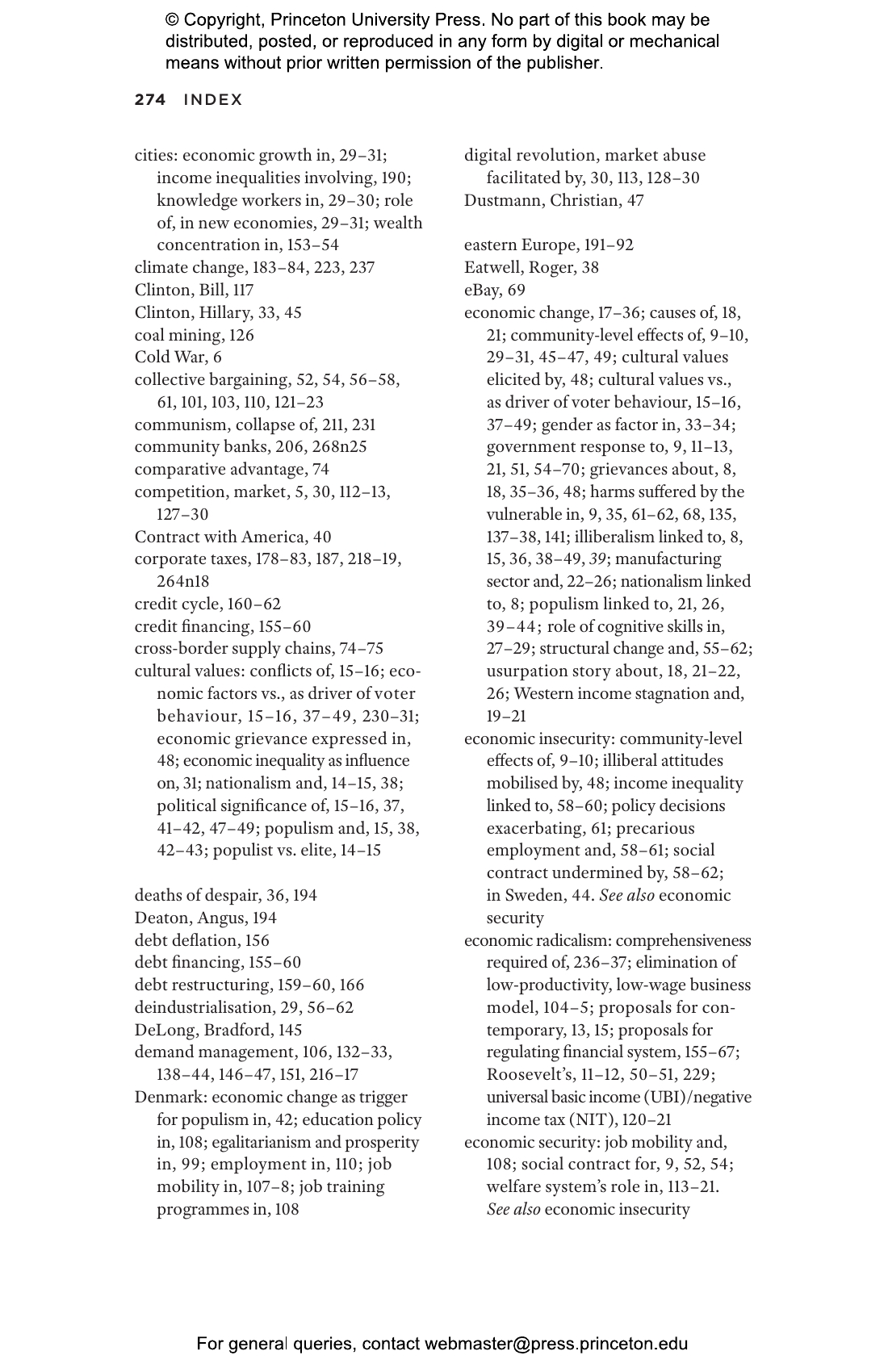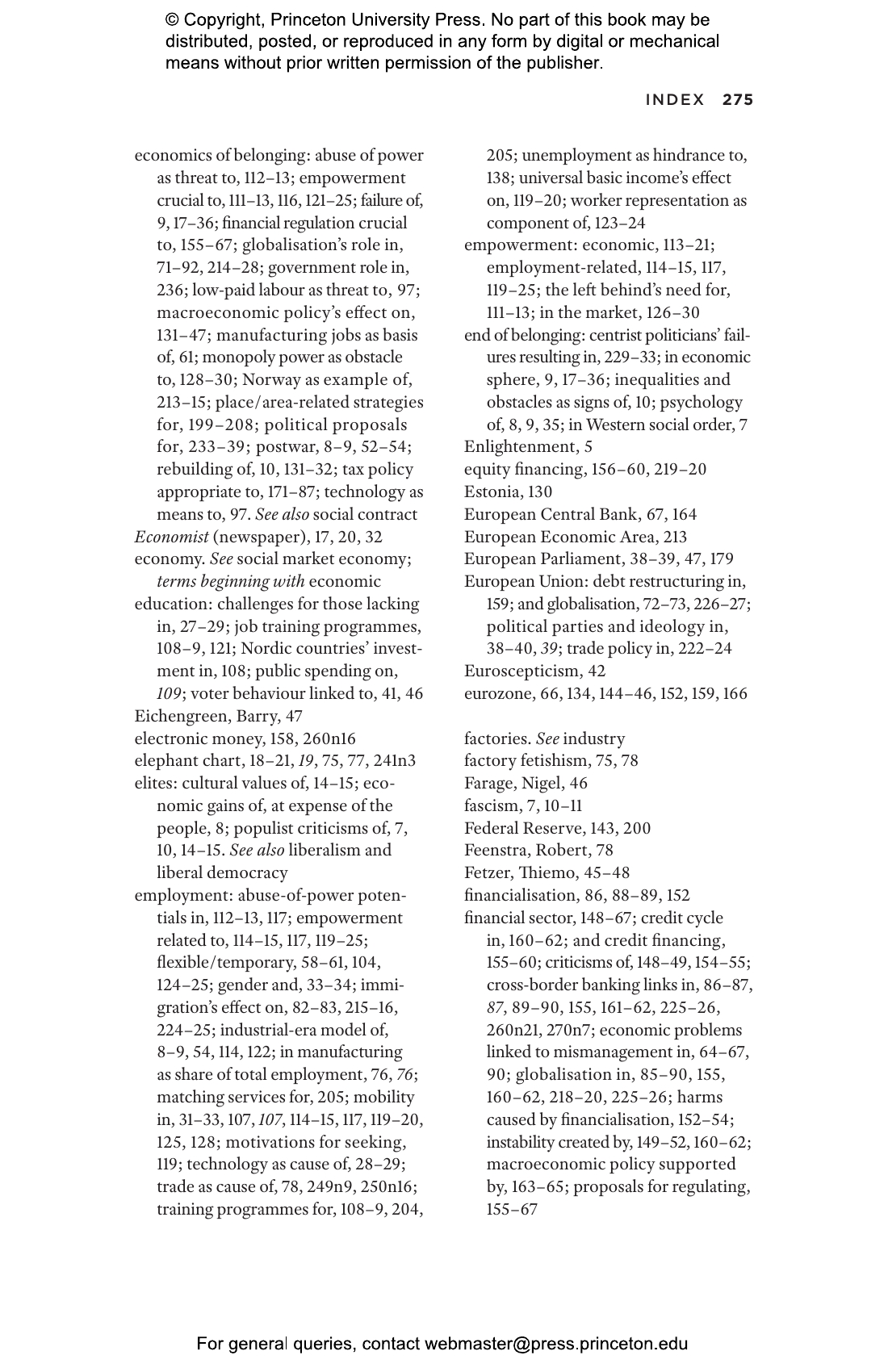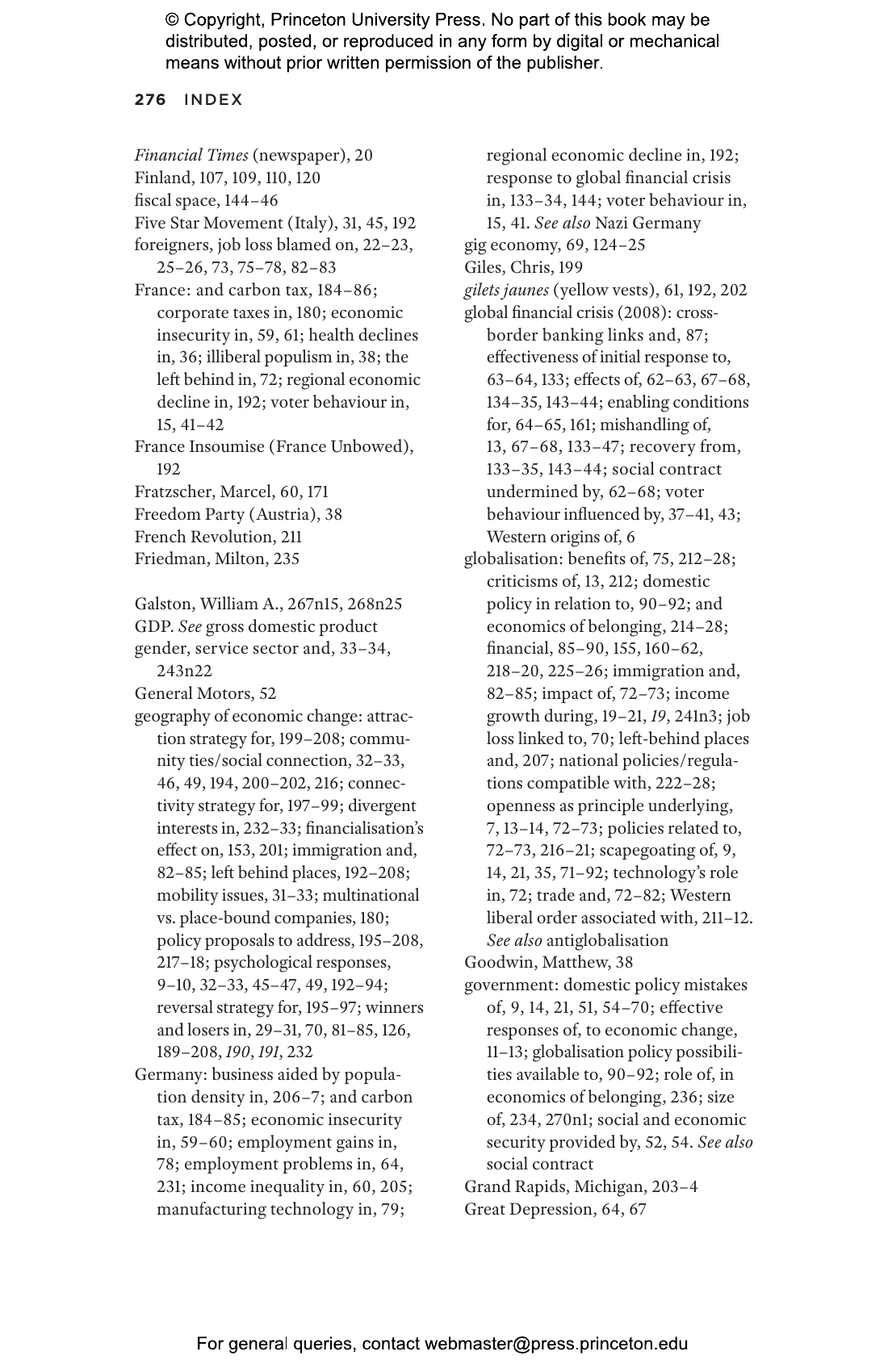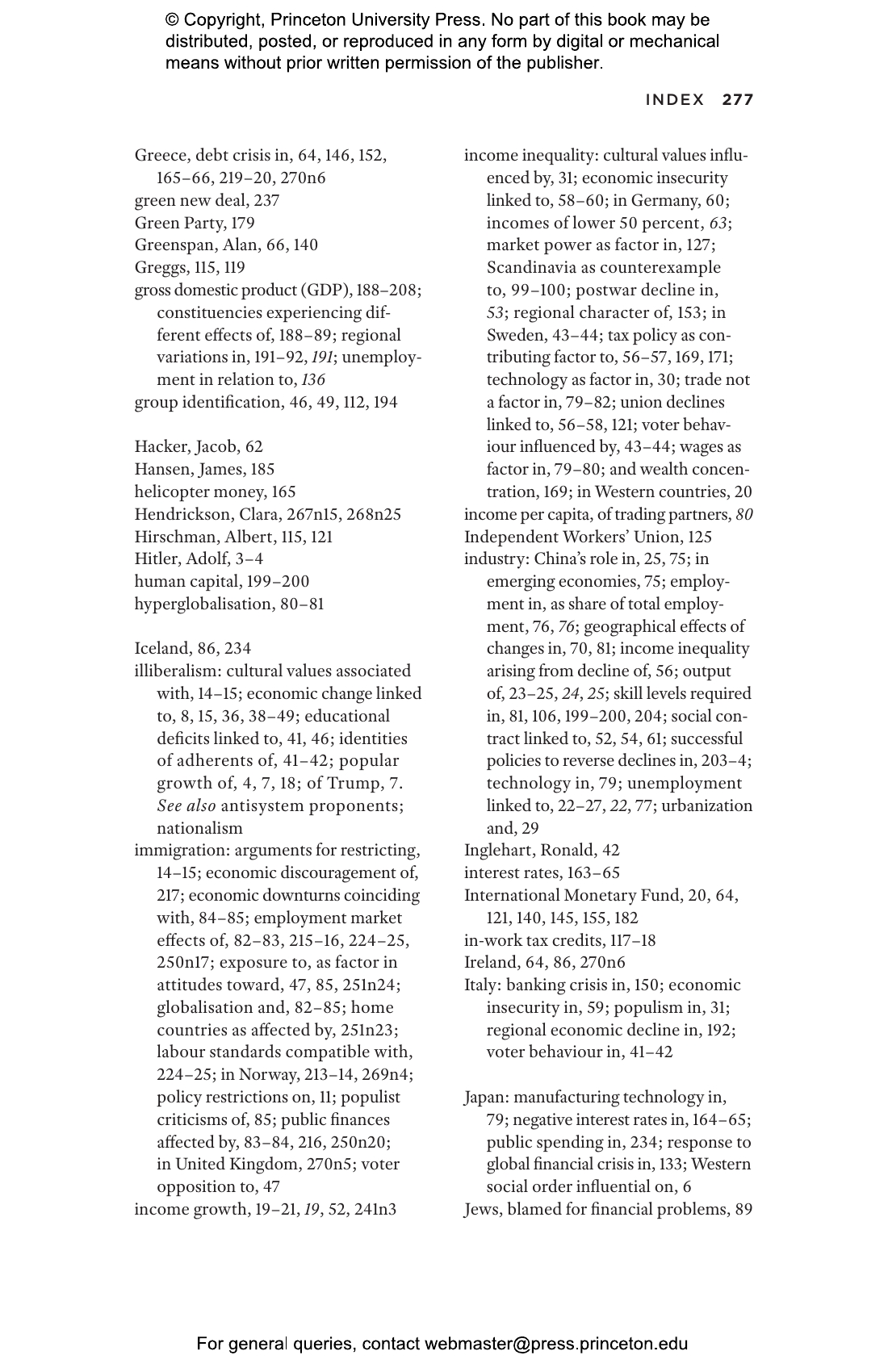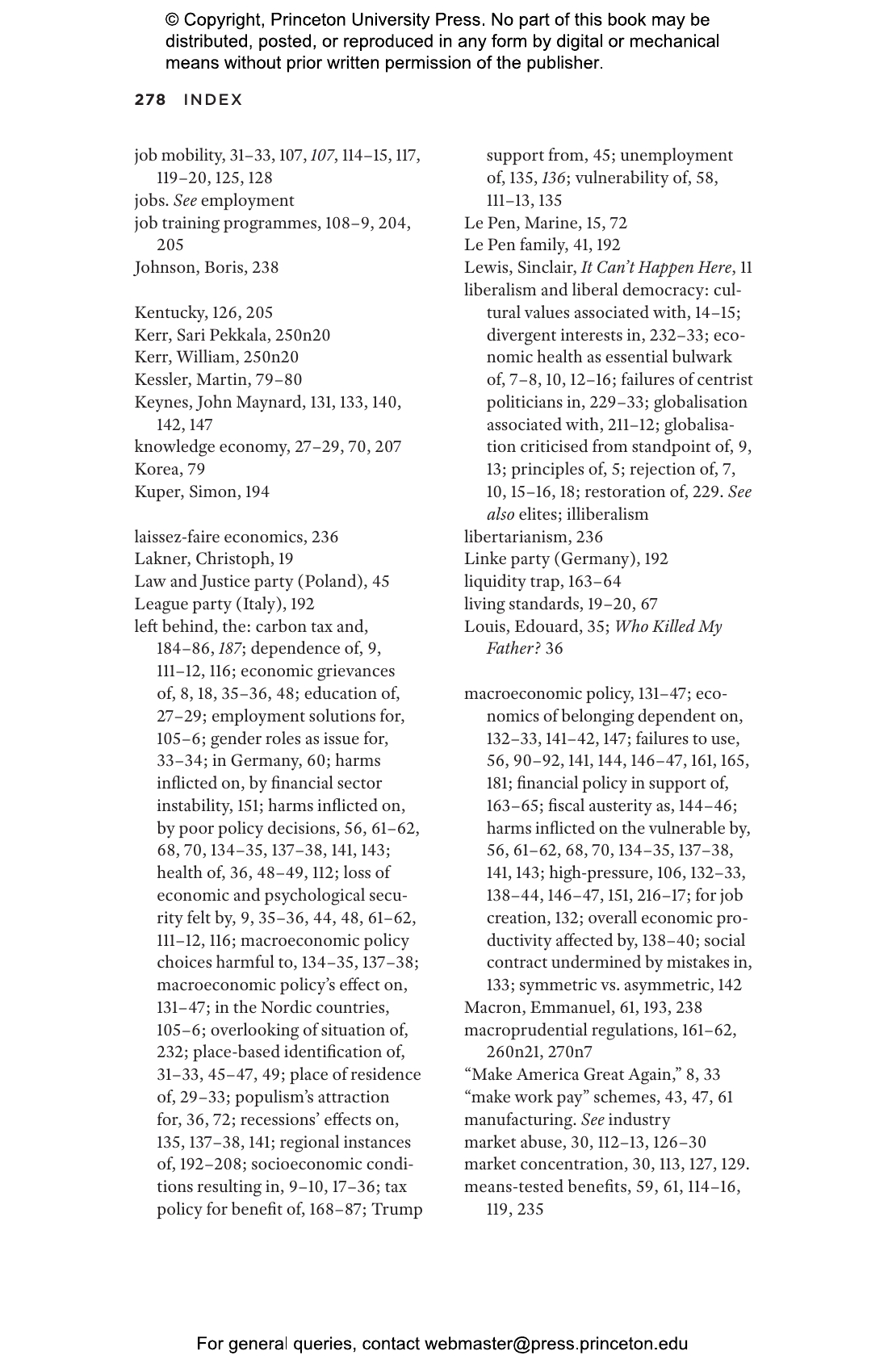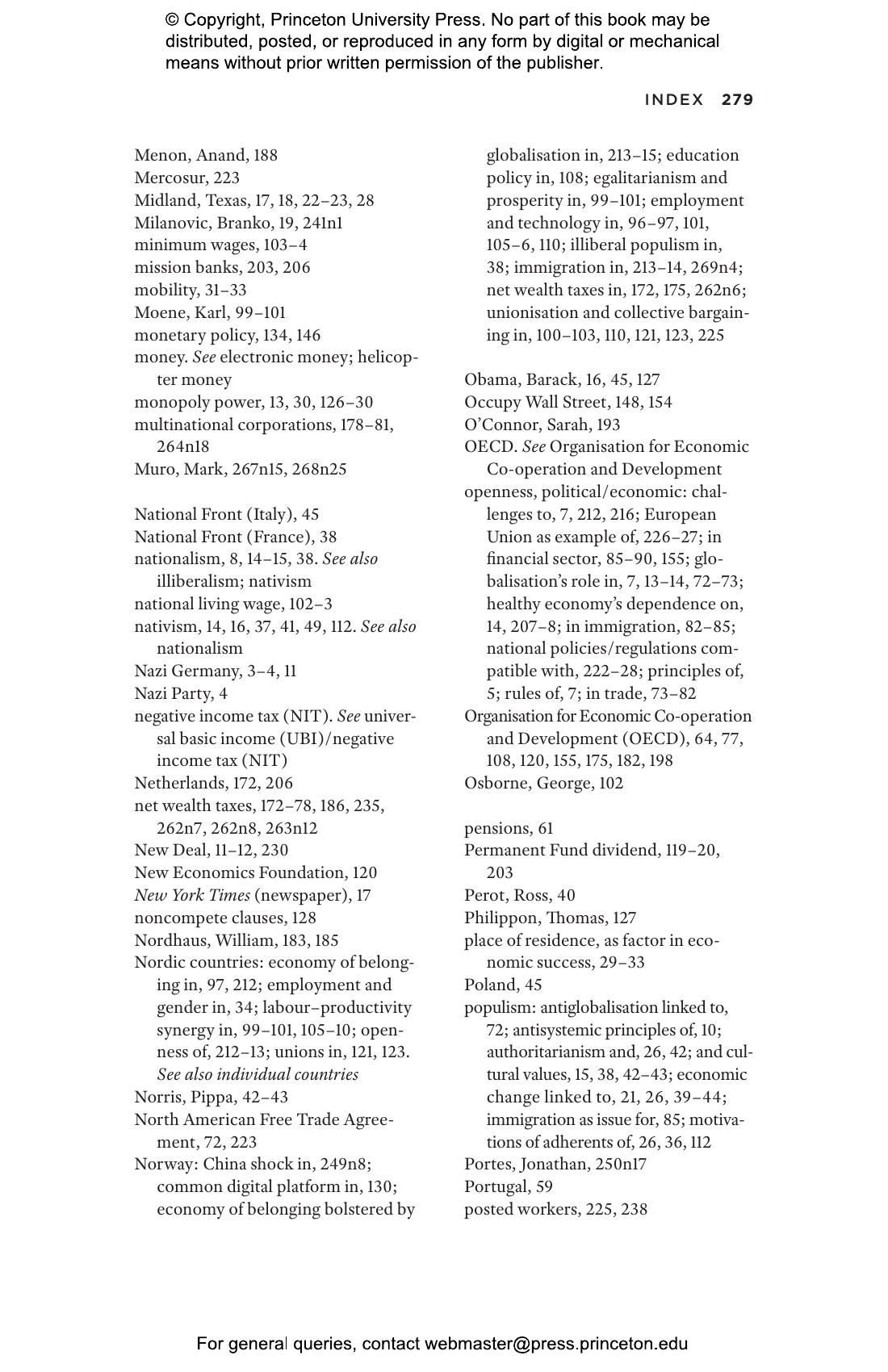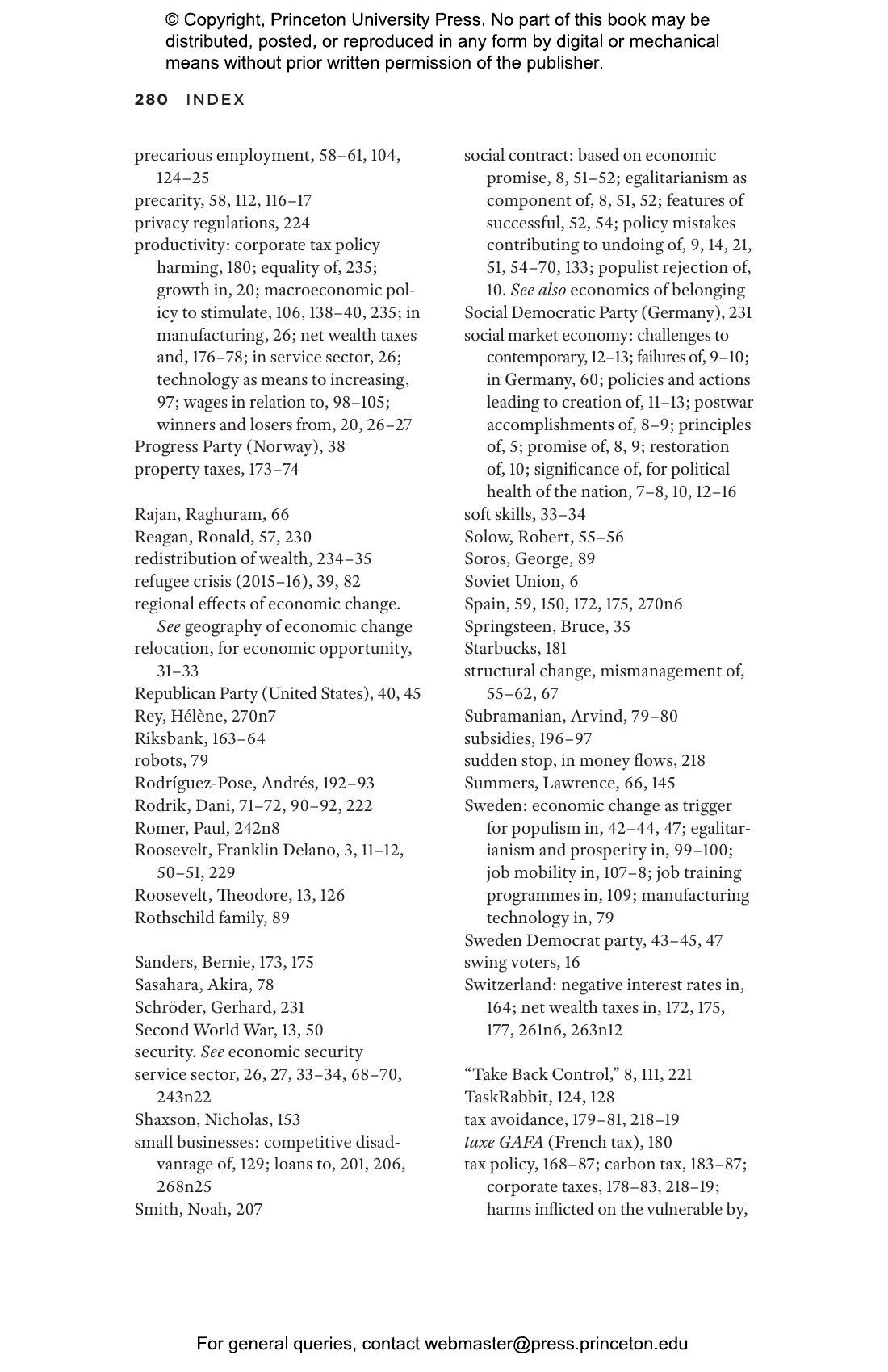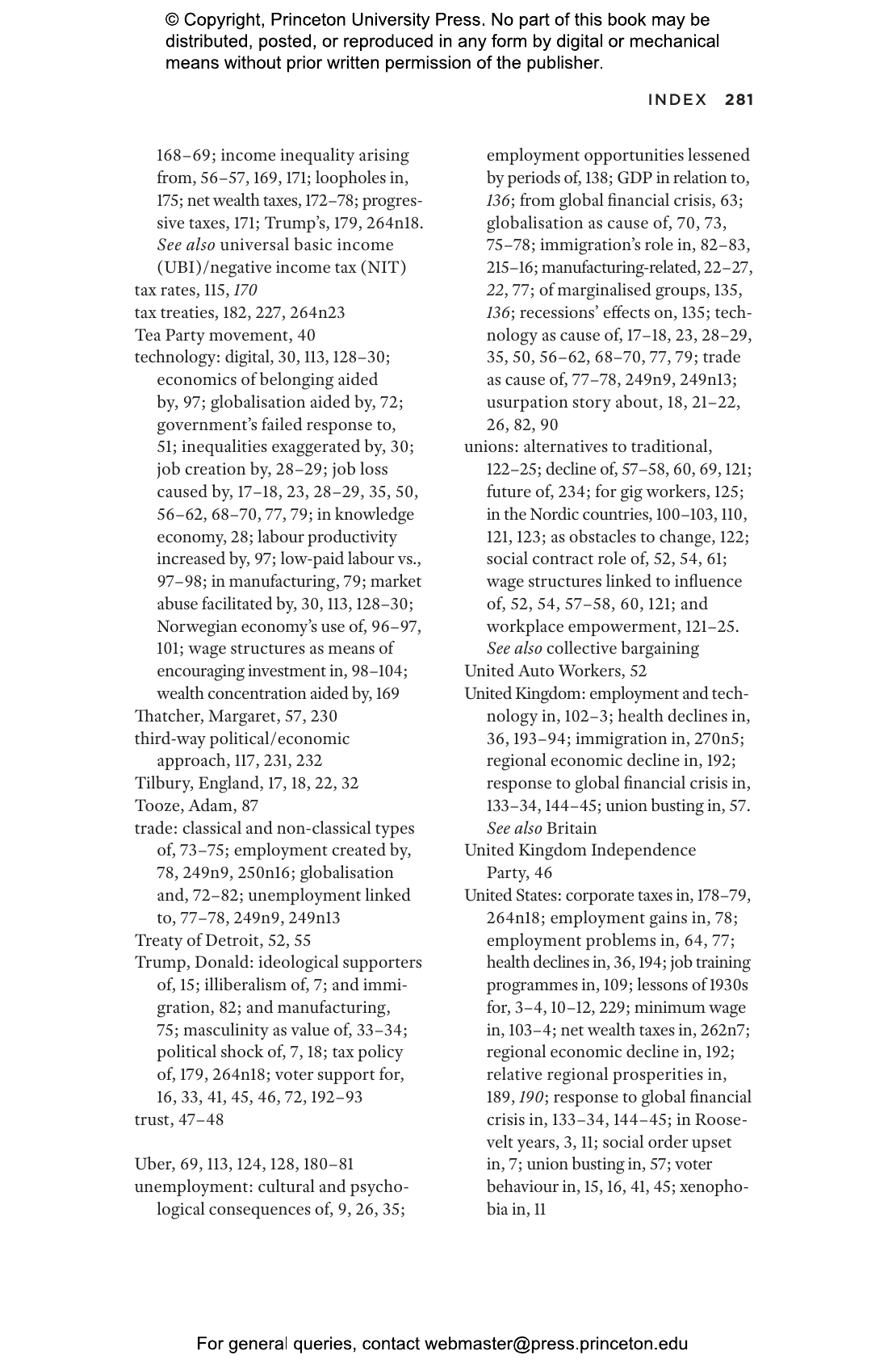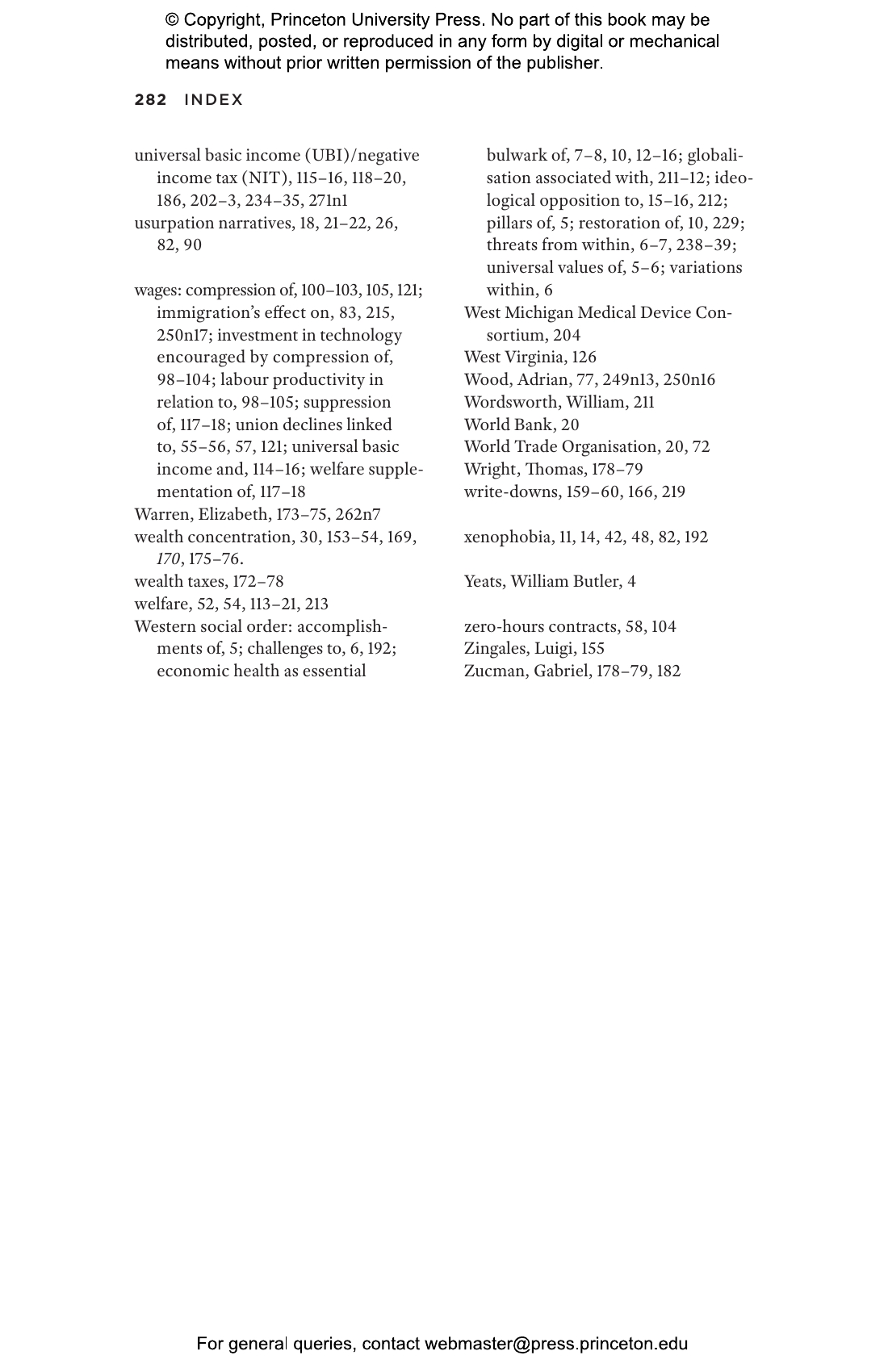Fueled by populism and the frustrations of the disenfranchised, the past few years have witnessed the widespread rejection of the economic and political order that Western countries built up after 1945. Political debates have turned into violent clashes between those who want to “take their country back” and those viewed as defending an elitist, broken, and unpatriotic social contract. There seems to be an increasing polarization of values. The Economics of Belonging argues that we should step back and take a fresh look at the root causes of our current challenges. In this original, engaging book, Martin Sandbu argues that economics remains at the heart of our widening inequality and it is only by focusing on the right policies that we can address it. He proposes a detailed, radical plan for creating a just economy where everyone can belong.
Sandbu demonstrates that the rising numbers of the left behind are not due to globalization gone too far. Rather, technological change and flawed but avoidable domestic policies have eroded the foundations of an economy in which everyone can participate—and would have done so even with a much less globalized economy. Sandbu contends that we have to double down on economic openness while pursuing dramatic reforms involving productivity, regional development, support for small- and medium-sized businesses, and increased worker representation. He discusses how a more active macroeconomic policy, education for all, universal basic income, and better taxation of capital could work together for society’s benefit.
Offering real answers, not invective, for facing our most serious political issues, The Economics of Belonging shows how a better economic system can work for all.
"The real argument of the book comes in the second half, namely that a set of radical but feasible policies holds the solution to inequality. And, if they were implemented, Sandbu eloquently argues, more globalisation would benefit all and defang populist polarisation."—Diane Coyle, Financial Times
"[A] brilliant, if sometimes controversial, exposition of what ails our economies and political systems."—Chris Johns, Irish Times
"The Economics of Belonging is a competent, confidently articulated survey of the academic economics literature on inequality."—Paul Collier, Prospect
"This is a crisply written analysis of economic discontents and their political consequences. Though written in the pre-pandemic era, the conclusions and prescriptions of this book are very relevant to our current debates."—Paschal Donohoe, Irish Times
"A wealth of analysis and insight [in] a few hundred pages."—Peter Thal Larsen, Reuters Breakingviews
"Sophisticated and engaging. . . . Thorough and compelling."—Paolo Mauro, Finance & Development
"The Economics of Belonging is an important contribution to the debate about the ‘left-behind’. Sandbu offers a highly readable and carefully argued narrative, which marshals evidence adroitly and proposes a range of policy prescriptions, many of which are persuasive and deserve serious attention."—John Tomaney, LSE Review of Books
"Liberal democracies are failing because they have served the interests of the few rather than the needs of the many. Calling for the restoration of ‘an economy of belonging,’ Martin Sandbu lays out an intelligent policy agenda—the redress of power imbalances in the economy, sensible financial regulations and macroeconomic policies, tax reform, and assistance to regions left behind. Written with erudition and clarity, this book should be on every policymaker’s desk."—Dani Rodrik, Harvard University
"Martin Sandbu is one of the most thoughtful economic commentators, and in this book he brings his characteristic insight to bear on what has gone wrong in the era of globalization. He offers real insights into how policymakers can correct past mistakes and ensure that the economy starts to work for everyone—so we can get beyond the polarization so manifest today."—Diane Coyle, University of Cambridge
"This book offers a cogent diagnosis of the current deep malaise suffered by advanced economies and societies. I find the arguments persuasive and the use of evidence deft. The breadth of coverage of the problems and cures is impressive for such a concise work. With novel formulations and an innovative stress on the issues, The Economics of Belonging is definitely something I wish I had written."—Richard Baldwin, author of The Globotics Upheaval
"The Economics of Belonging provides an ambitious explanation for the rise of populism in developed countries, and proposes a political program for how to tackle it. Offering a fresh and stimulating analysis of populism, Sandbu constructs a broad, well-evidenced case that it has economic causes. Fluent and clear, with a new and elegant argument, this book is well-tailored to a global audience."—Stian Westlake, coauthor of Capitalism without Capital
"Martin Sandbu has proven himself to be one of the most acute observers of contemporary politics and economics. In this trenchant and highly readable book, he argues that it is by recreating an effective social market economy that the strength and stability of the Western social order—so brutally challenged by Brexit and Trump—can be reasserted. A must-read for all those interested in the issue of populism and possible responses to it."—Anand Menon, King’s College London
"Globalization and technical change have combined to increase the stresses on populations everywhere. But the real culprit for the current malaise, according to Martin Sandbu, is simply the application of bad economic ideas over and over again. Luckily for us, he has more than a few good ones to help us out. Through innovative policies such as net wealth taxes, carbon checks, and wage floors, Sandbu gives us hope that a better world is possible."—Mark Blyth, coauthor of Angrynomics

